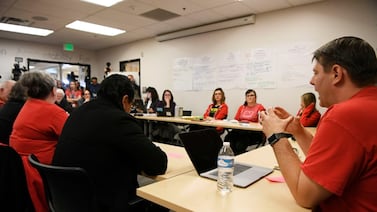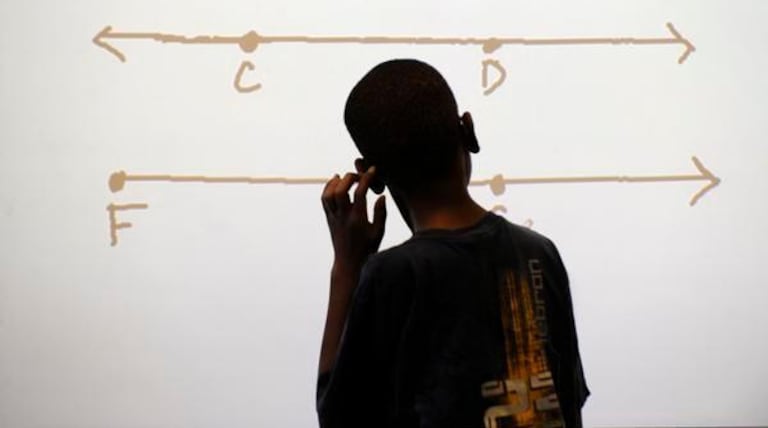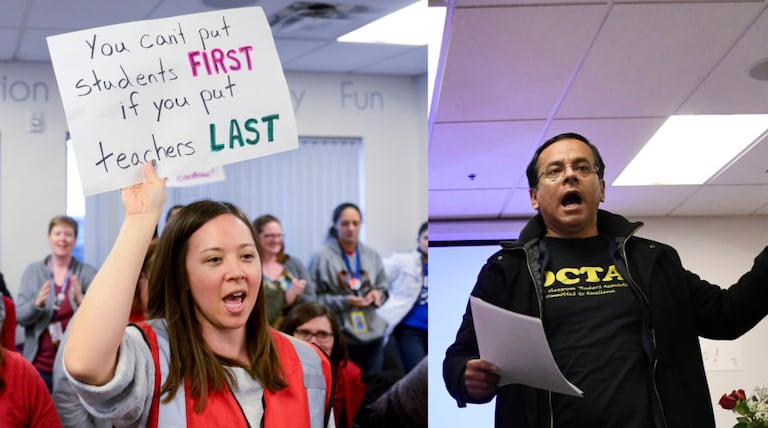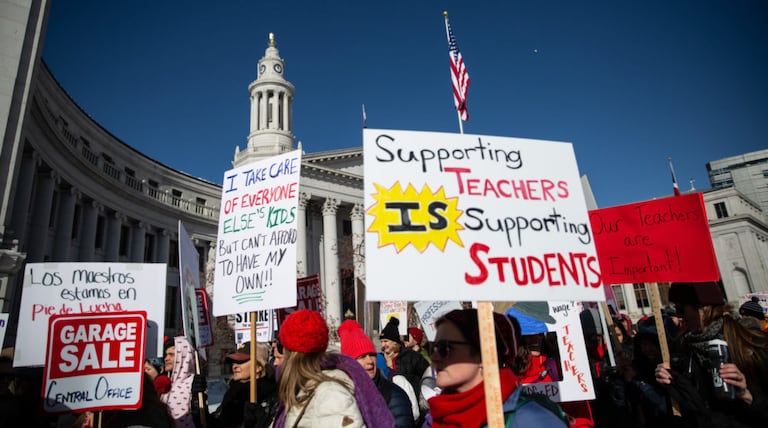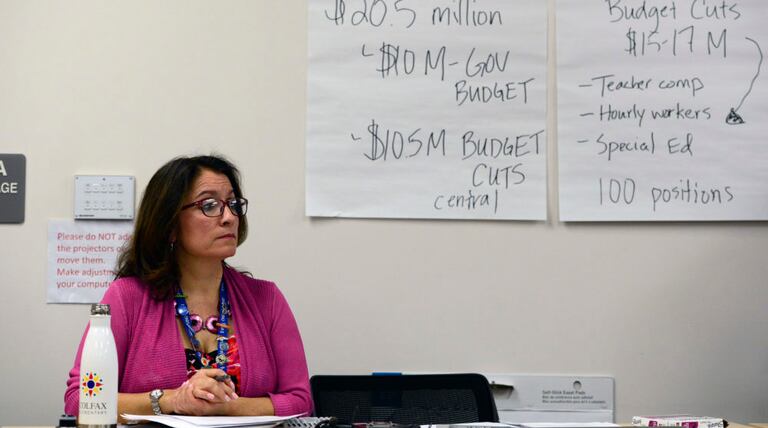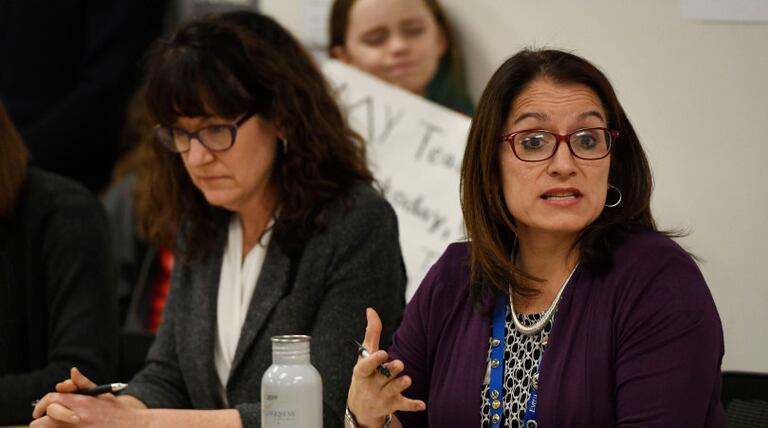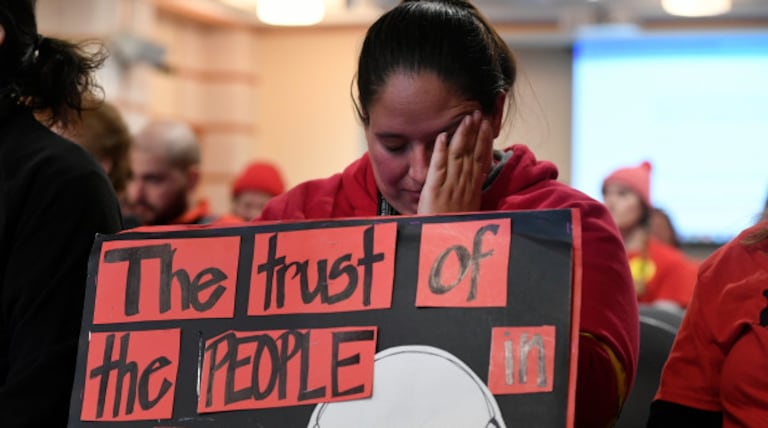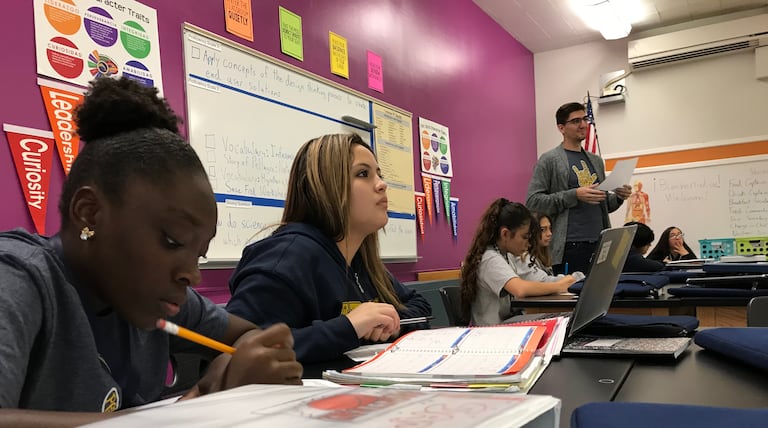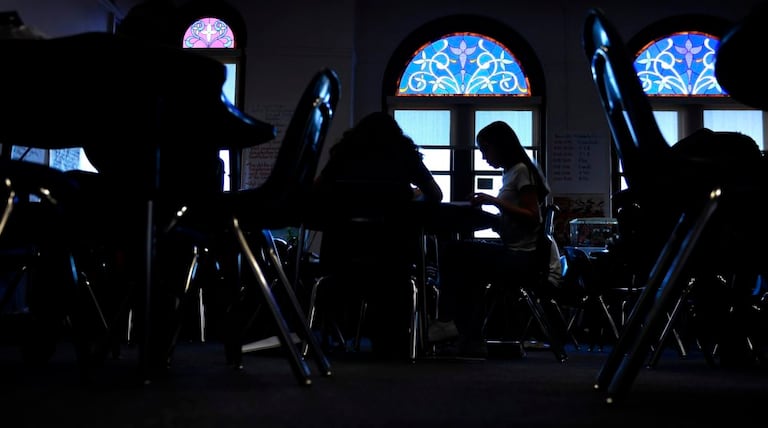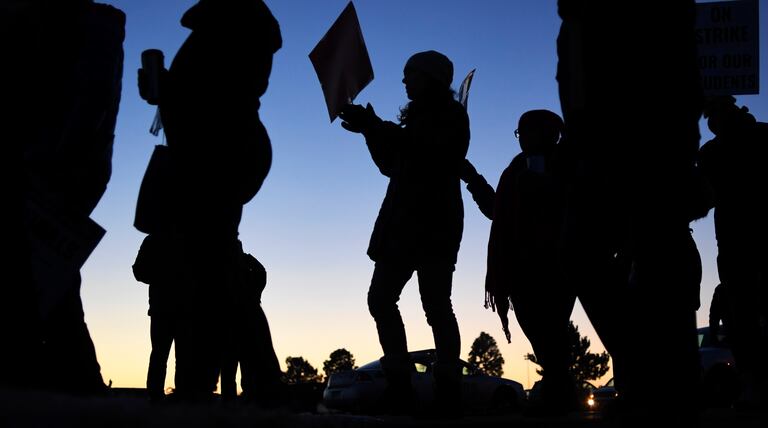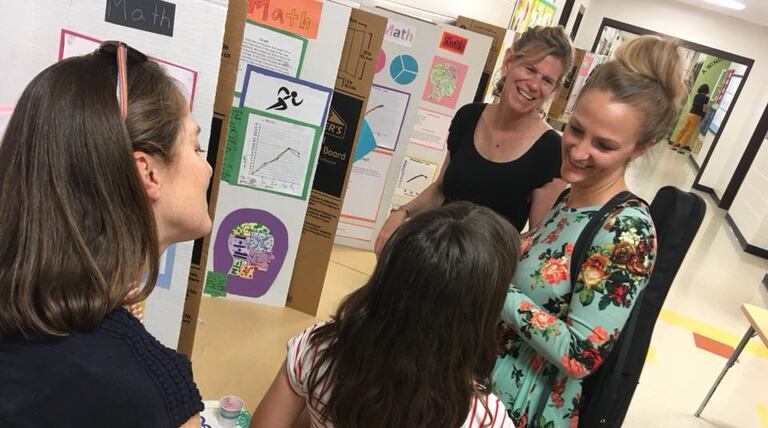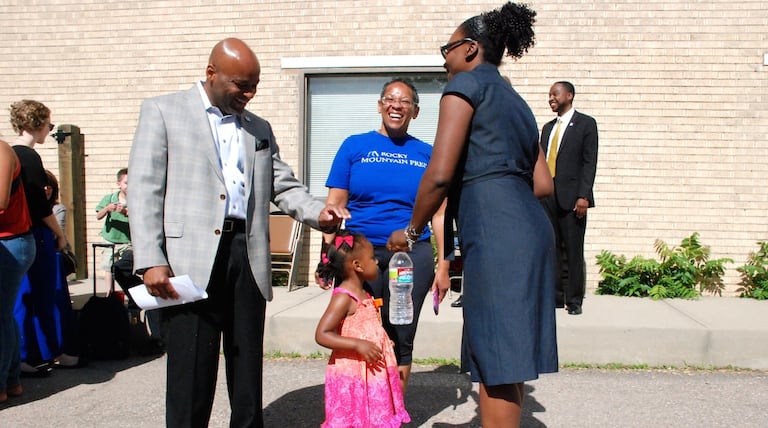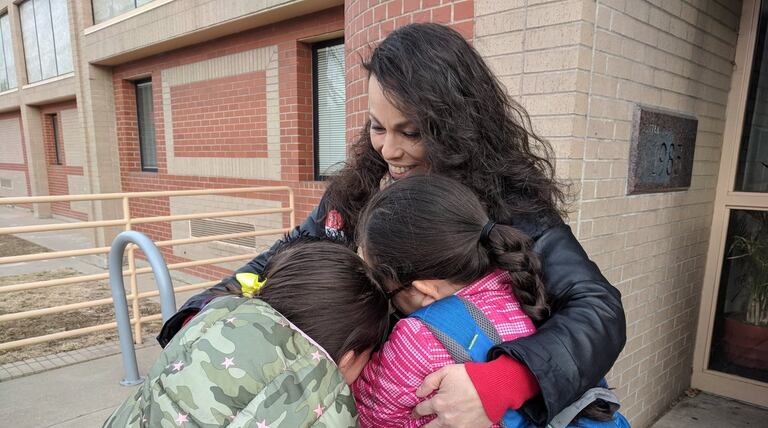Denver Teacher Strike
Cuts to state education funding mean Denver Public Schools must slash $65 million from its budget.
Higher teacher retention means the district is paying more in salaries than it budgeted for this year.
Candidates opposed to policies that made Denver a national exemplar for education reform now control the school board.
Union members ratified the agreement two months ago, leaving the school board vote as the last step to making it official.
Union elections happen every two years, but the timing makes this one especially important.
Information obtained through an open records request shows the full breadth of the Denver Public Schools central office reorganization thus far, which involves cutting more than 220 positions.
A district spokesperson explained that the district’s day-of count was based on information from school principals, some of whom may have been delayed in reporting.
One big change involves the supervisory structure for principals.
The strike gave us a chance to get to know each other, to find out how things are going across grade levels and content areas, to sympathize and empathize.
Cutting more than 150 central office jobs will free up $17 million for raises for teachers and other employees, as well as special education services.
After the Denver teacher strike, 'flip the board' — a battle cry that originated with black education activists — has caught on with teachers and the parents supporting them. But what 'flip the board' means, exactly, is complicated.
More than 97 percent of union members voted to ratify the agreement, according to the DCTA.
'It’s never been administration-versus-teachers, district-versus-teachers, in the culture we have created here.'
After a three-day strike, Denver teachers have a tentative agreement with the school district. But will striking teachers get back pay? Is the Denver teacher contract a good deal? How do teachers know how much they'll make? We answer your questions.
The tentative ProComp agreement in Denver allows teachers to get raises several ways, increases base pay, and reduces the value of bonuses.
A teacher loyal to the union cause remained in her classroom because she said she couldn’t afford to strike and lose the pay.
After a three-day Denver strike, teacher reactions range from relief to pride to frustration as they return to the classroom.
The reactions began as soon as the deal was announced, with a tweet from Gov. Jared Polis expressing relief that the labor dispute between the Denver school district and its teacher union was over. Polis was among the many Coloradans weighing in about the end of the strike that kept many Denver teachers out of
Students are welcoming their teachers back this morning, on what is certain to be an unusual day in Denver schools. Here's how you can tell us your post-strike story.
The first Denver teacher strike in 25 years is over in a deal that gives teachers more predictable pay while maintaining bonuses at high-poverty schools that the district values.

